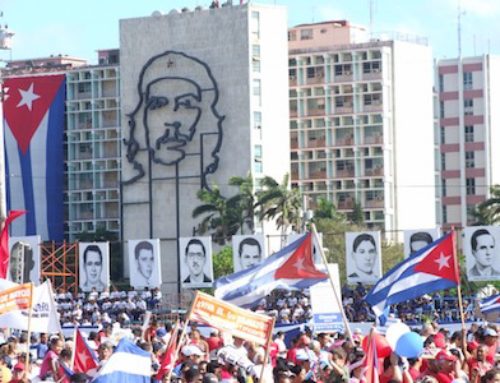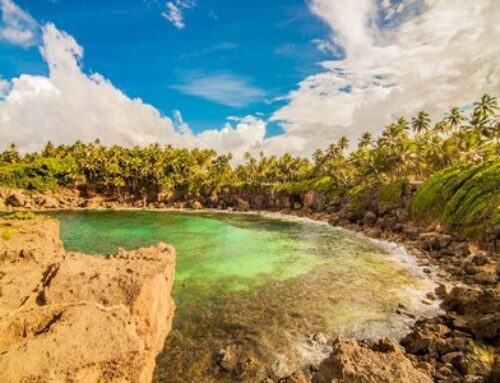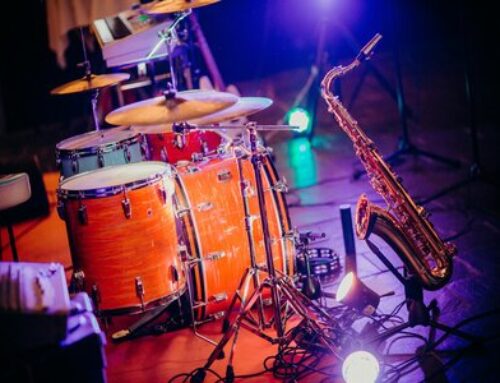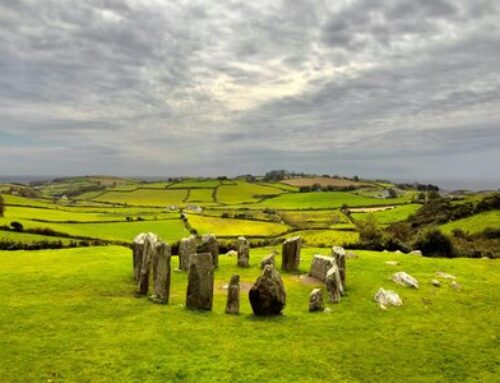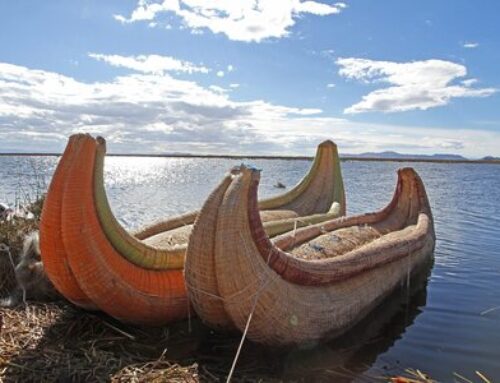Beb Reynol is a French photojournalist living in Seattle. He’s worked in Pakistan and Afghanistan, and is now leading documentary photography tours in partnership with AltruVistas, with upcoming 2018 journeys to Rwanda, Uganda, and Southern France. We sat down with him to learn more about his work as a photographer, teacher, and guide, and to talk specifically about his July tour, which focuses on Rwandan women and their economic empowerment. There is also an option to extend the Rwanda tour by three days in order to visit the silverback gorillas.
Links to all three of Beb’s upcoming tours can be found at the end of the interview. To view more of his incredible photography from all over the world, visit www.deltageographic.com.
Hi Beb! Can you tell us about your history as a photographer, and about your career path?
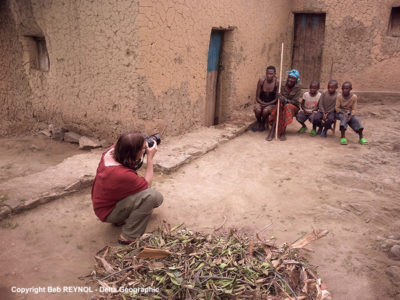 Sure. I worked for several years as a photojournalist on assignment in Pakistan and Afghanistan. Prior to this, I did a documentary in Seattle about heroin addiction, and worked for Seattle newspapers for a couple years before building a career working as a photojournalist for international NGOs. In Afghanistan, I worked with AINA Media out of Paris, where I started training local Afghan photographers in Kabul. This is where I got the idea to lead photo workshops.
Sure. I worked for several years as a photojournalist on assignment in Pakistan and Afghanistan. Prior to this, I did a documentary in Seattle about heroin addiction, and worked for Seattle newspapers for a couple years before building a career working as a photojournalist for international NGOs. In Afghanistan, I worked with AINA Media out of Paris, where I started training local Afghan photographers in Kabul. This is where I got the idea to lead photo workshops.
I crossed the border on foot from Pakistan to Afghanistan in 2003. It was three to four years into my career as a photojournalist that I began doing the trainings in Afghanistan. I still teach in Kabul with local NGOs training photographers.
AINA is no longer operational; they were aiming to rebuild Afghan journalism throughout all mediums—radio, written word, photo—and to support freedom of expression. Three or four years after I began working with them, they no longer had a reason to exist—the flame had been successfully passed on to Afghans. I watched the number of international trainers shrink every year as the organizational mission became fulfilled. Some of our students have gone on to become internationally-renowned photojournalists, such as the husband and wife team Massoud Hossaini (2012 Pulitzer Prize winner) and Farzana Wahidy.
Now, I teach workshops with institutions such as the International Center of Photography in New York, the Rayko Photo Center in SF, and the Photographic Center Northwest in Seattle. Teaching is a way to give back and share knowledge. What is a meaningful story? How do we approach people? And more importantly, how de we make their voice heard?
I’ve also led workshops in collaboration with guest speakers from UNICEF, Doctors Without Borders, and the International Rescue Committee. I always collaborate with organizations with philanthropic aims; organizations that engage audiences via transformational experiences that are both educational and empowering. Each organization has its own inspiring mission, and as such, each collaboration brings different aspects of photography into play, as well as photography’s relationship to the organization’s work. Recognizing these differences is an important part of the activities I create for these workshops.
Each thing I do organically leads to another, so now I’m branching out my career once again by becoming a tour leader. The tours are extremely rewarding—it’s more about the human contact at this point than journalism. The experience, while about photography, focuses on making a connection. In Rwanda, I’m bringing together photographers and travelers from all over the world, and together we’re exploring a different way to look at photo storytelling. This involves taking the time to meet with local organizations and their beneficiaries, traveling to the field and making a real connection with local farmers, and looking at the positive achievements and what we can say about the years to come.
On the tours, I am working with photographers and travelers of all levels who share a common goal: a passion for exploring and learning. We share a cultural experience where we bond with the people we meet, and walk into a land beyond our expectations. We return as better communicators, and with increased ability to use our cameras or point-and-shoots to tell a great story.
How did you come to partner with AltruVistas?
In 2008, I met a student through one of my workshops, and he knew Malia. She was working for Global Exchange and she had filled trips to Afghanistan, which really impressed me, as I was initially interested in doing tours to Pakistan, but at the time that was a difficult destination to sell to Americans. I’ve done some Rwandan tours on my own, but I remained interested in Malia’s philosophy and ethics. So now we’ve partnered because that’s also the direction I was moving in—humane and social cross-cultural engagement; seeing the positive in international stories.
When did you start going to Africa?
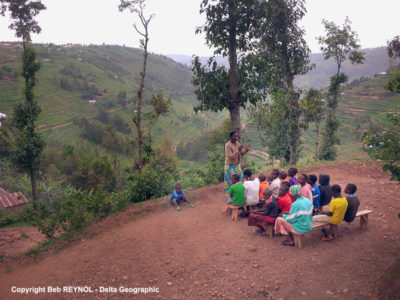 I started going to Rwanda and Uganda about two years ago, as a photojournalist. I was working on a story about population growth in Uganda. I also began doing a series of portraits. It was easy to make new friends with locals there, so that led me to create these new kinds of tours.
I started going to Rwanda and Uganda about two years ago, as a photojournalist. I was working on a story about population growth in Uganda. I also began doing a series of portraits. It was easy to make new friends with locals there, so that led me to create these new kinds of tours.
On my tours, we meet face to face with women from both urban and rural areas. These women have their own stories to tell, as well as share how they are transforming Rwanda. I’m not focusing on the 1994 genocide and its aftermath, but rather focusing on the positive stories these women can share with us. What is it to be an African woman in this part of the world? What hopes do these women hold for their children? What current issues need to be addressed to strengthen equal opportunities in education for girls?
How did you come to focus on the stories of women, and what are some destinations on your Rwandan itinerary?
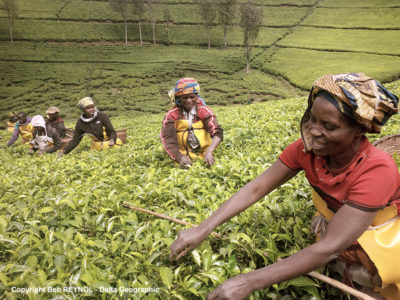 Working with women in my tours has been an organic process. In Uganda I have worked with a lot of women who were raising 8-10 kids, all by themselves. Up until recent years, the country was experiencing a large infant mortality rate and pushing a large family structure to compensate. Now, with the work of the NGOs, the mortality rate has dropped, but the cultural imperative to reproduce a lot still remains.
Working with women in my tours has been an organic process. In Uganda I have worked with a lot of women who were raising 8-10 kids, all by themselves. Up until recent years, the country was experiencing a large infant mortality rate and pushing a large family structure to compensate. Now, with the work of the NGOs, the mortality rate has dropped, but the cultural imperative to reproduce a lot still remains.
In Rwanda, most of the survivors of the 1994 genocide were women. But I learned that in Rwanda, you don’t talk about the genocide, but you do commemorate the dead for the sake of the living. Today, a whole new generation is working on the making of a new country based on new values. Women have become a priority. While there’s still struggle, I’m more interested in focusing on these values and on the positive impact their enactment has on women in Rwanda. I see vast opportunities for positive stories in both countries.
In Rwanda, we collaborate with local organizations that provide higher education and special training for urban and rural women to become financially independent. Women for Women International opened a training center in Kigali that teaches entrepreneurship skills for women in need so they can take better control of their lives. Sustainable Harvest Rwanda helped create a coffee cooperative in rural areas for the benefit of female farmers, where special entrepreneurship training is offered. Through its Rwanda Project/Relationship Coffee Institute, you can buy coffee directly from the cooperative, which supports both the training efforts and the farmers directly. (Editor’s note: Here’s the link for those of you not traveling to Rwanda with us! www.relationshipcoffeeinstitute.org/order-coffee/)
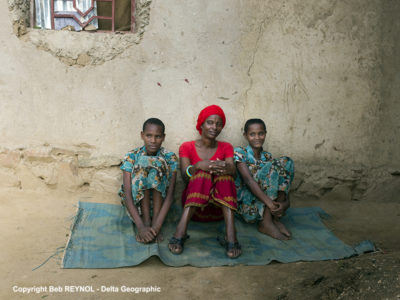 Our itinerary also takes us to Kibuye, along Lake Kivu—which separates Rwanda from the Democratic Republic of the Congo. A boat is necessary to take us to remote villages that are very difficult to reach by land. There, we meet with farming families who live on subsistence agriculture—a practice that is based on what is needed. To widen our knowledge about what the land has to offer in Rwanda, we work with the local villagers and create environmental portraits of them, their land, and all that they can teach us about what they call home, under the sole respect of their approval. Environmental portraiture is an approach used in documentary. It takes into account the individual’s personal surrounding as a backdrop and visual indicator of their identity, their basic resources, and therefore the issues at hand. Our responsibility is to use these photographs to empower their subjects’ voices.
Our itinerary also takes us to Kibuye, along Lake Kivu—which separates Rwanda from the Democratic Republic of the Congo. A boat is necessary to take us to remote villages that are very difficult to reach by land. There, we meet with farming families who live on subsistence agriculture—a practice that is based on what is needed. To widen our knowledge about what the land has to offer in Rwanda, we work with the local villagers and create environmental portraits of them, their land, and all that they can teach us about what they call home, under the sole respect of their approval. Environmental portraiture is an approach used in documentary. It takes into account the individual’s personal surrounding as a backdrop and visual indicator of their identity, their basic resources, and therefore the issues at hand. Our responsibility is to use these photographs to empower their subjects’ voices.
In this kind of field, we are responsible photographers and we must disclose our intents to shoot-to-publish our photographs, and obtain consent from the people we meet. We discuss ethical issues behind sharing, publishing, and copyright. We slow down, we build relationships, and we take great consideration that our photographs can make a difference in adding support for women in Rwanda. Then, we become agents for change.
Can you talk about the sustainable eco-tour to see the Rwandan gorillas?
Sure. We’re offering an additional 3-day supplement if participants want to also see the gorillas. It’s optional, and tacked on at the end of the trip. About 80% of people visiting Rwanda want to see the gorillas. The animals are highly protected by the government, and this type of tourism is an important financial resource for the country and the means needed for nature conservation.
Beb, I’d like to ask you one final meta-question. What is your personal definition of photojournalism?
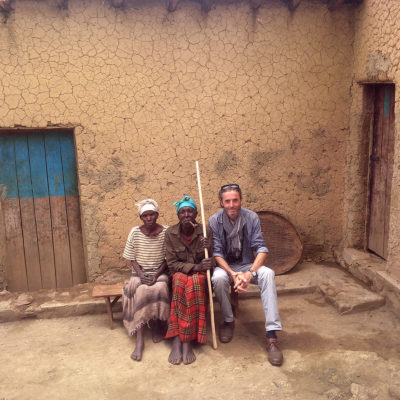 My job is to find a story that people care about. News is often depressing in part because people are focusing on tragedies that will reach the largest market. A documentary photographer works on issues in depth, understanding people and their surrounding regions, and creates works that are both informative and intimate by sequencing each image with a story of its own. Photojournalism seems to represent a faster lane, and because it doesn’t always ignite a trust on its intent, the industry is trying to change its approach.
My job is to find a story that people care about. News is often depressing in part because people are focusing on tragedies that will reach the largest market. A documentary photographer works on issues in depth, understanding people and their surrounding regions, and creates works that are both informative and intimate by sequencing each image with a story of its own. Photojournalism seems to represent a faster lane, and because it doesn’t always ignite a trust on its intent, the industry is trying to change its approach.
For this tour, and every trip I take to Rwanda, one of my goals is to capture more in depth how these women are being empowered. We do this through collaboration with our subjects; by listening to their stories and taking photographs that are inspiring. It’s citizen diplomacy—we become ambassadors of these women’s stories.
To learn more about Beb, and to view more of his incredible photography from all over the world, visit www.deltageographic.com.
Rwanda
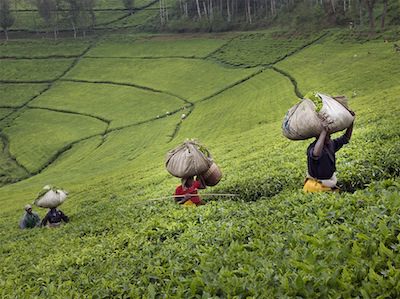
October 16-25
$3400
single supplement $400
Optional 3-day silverback gorilla add-on excursion:
$2275 (includes $1500 gorilla trek permit)
Sponsoring Organization: Beb REYNOL
Availability: OPEN
France
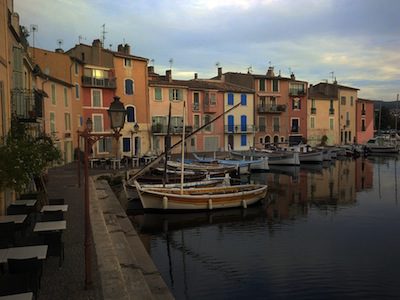
Sept. 15-24
$TBA
Sponsoring Organization: Beb REYNOL
Availability: OPEN
Uganda
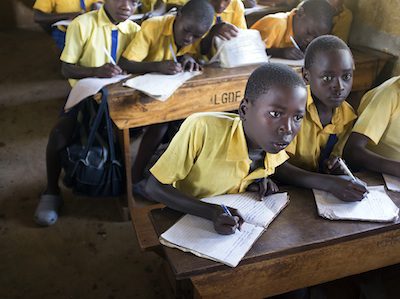
Oct. 5-14
$3400 double occupancy; $400 single supplement
Sponsoring Organization: Beb REYNOL
Availability: OPEN

